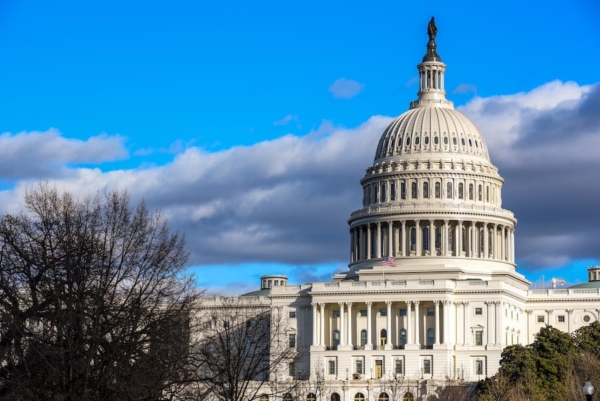Medicare Advantage Slammed in New HHS Inspector General’s Report

We have been sounding alarm bells for many years about Medicare Advantage (MA), the privately-run health plans for seniors that are growing in popularity as an alternative to traditional Medicare. This week, an eye-opening report by the Inspector General’s office at the Department of Health and Human Services (HHS) confirmed some key criticisms by the National Committee and other seniors’ advocates – namely, that MA plans are denying legitimate claims and refusing to authorize reasonable medical procedures.
“Tens of millions of denials are issued each year for both authorization and reimbursements, and audits of the private insurers show evidence of ‘widespread and persistent problems related to inappropriate denials of services and payment,’ the investigators found.” – New York Times, 4/28/22
The Inspector General’s office estimated that 13% of claims that Medicare Advantage insurers denied should have been covered. MA plans also improperly denied up to 85,000 prior authorizations. The New York Times reports, “In some cases, plans ignored prior authorizations or other documentation necessary to support the payment. The most frequent denials found by the investigators included those for imaging services like M.R.I.s and CT scans.”
“Advantage plans also denied requests to send patients recovering from a hospital stay to a skilled nursing center or rehabilitation center when the doctors determined that those places were more appropriate than sending a patient home.” – New York Times, 4/28/22
Medicare Advantage insurers are paid a fixed price per beneficiary by the federal government. The rationale is that private plans can theoretically provide more cost-effective, coordinated care to save the Medicare program money. The profits that MA plans have realized from this arrangement surely have rolled in, but the savings to Medicare haven’t materialized. As our president and CEO, Max Richtman, recently wrote in Common Dreams:
Between 2009 and 2021, the government paid Medicare Advantage plans $140 billion more than it would have if the same patients had stayed in traditional Medicare. In fact, the cost to taxpayers of switching seniors to MA plans ‘has exploded since 2018 and is likely to rise even higher.’” – NCPSSM President & CEO Max Richtman, Common Dreams, 3/25/22
Instead of being held accountable for overbilling the government and denying care to beneficiaries, MA plans have been rewarded with an 8.5% increase in rates for 2023 by the Centers for Medicare and Medicaid Services.
MA plans also continue to grow in popularity. More than 26 million seniors – or 42% of all Medicare beneficiaries – were enrolled in an MA plan last year. And the Congressional Budget Office (CBO) projects that more than half of all beneficiaries will be in MA plans by 2030. This isn’t because MA plans are patently superior for patients; it is because of the lure of putative cost-savings (in the form of lower premiums or free extras like gym memberships) and a torrent of television ads featuring famous pitchmen like Joe Namath and Jimmy Walker.
The Medicare Advantage tv ads do not mention any of the downsides of these plans – including restricted networks of providers, inaccurate network listings, and the wrongly denied claims and pre-authorizations that the Inspector General’s office has just flagged. In fact, the ads make it seem as if Medicare Advantage is the whole Medicare program, with many enrollees not even aware that publicly-run, traditional Medicare is another – and often better – option.
As our President and CEO argues in his Common Dreams column, there is a movement to privatize traditional Medicare that is gaining momentum, which NCPSSM considers harmful for older Americans. The shifting of market share to MA plans is part of it. But so are recent efforts to increase the role of private, for-profit companies in traditional Medicare.
The National Committee and other seniors’ advocates are particularly wary of a pilot program by CMS recently re-branded as ACO/REACH and previously known as Direct Contracting, which allows private entities more opportunities to manage traditional Medicare beneficiaries’ care. Meanwhile, progressive Democrats on Capitol Hill, most prominently Rep. Pramila Jayapal (D-WA), have taken a hard line against the new program:
“(There is) a clear-cut argument for why we must immediately end Medicare privatization programs like ACO Reach. There’s no excuse for allowing the same Medicare Advantage organizations to now administer ‘care’ for traditional Medicare beneficiaries.” – Rep. Pramila Jayapal tweet, 4/28/22
While CMS presses forward with the ACO/REACH program, Medicare officials say they are looking at the Inspector General’s report about Medicare Advantage practices. “Plans found to have repeated violations will be subject to increasing penalties,” reports the New York Times. “The agency ‘is committed to ensuring that people with Medicare Advantage have timely access to medically necessary care.’”
At the same time, some in Congress are attempting to rein-in MA plans and protect patients. A piece of bipartisan legislation called the Improving Seniors’ Timely Access to Care Act has been introduced in both the House and Senate. According to one of the House sponsors, Rep. Suzan DelBene (D-WA), the legislation “would improve care for seniors by streamlining and standardizing the way Medicare Advantage plans use prior authorization and increasing oversight and transparency.”
It is only appropriate that these private plans, which are consuming a growing chunk of Medicare market share every year, be subject to strict oversight and thorough scrutiny. As MA insurers rake in hefty profits, it is crucial that proper patient care isn’t sacrificed in the process.
It’s Time to Bring Back the House Select Committee on Aging



Some two decades ago, seniors had a Congressional committee dedicated solely to safeguarding their interests. Then the Republicans, led by Speaker Newt Gingrich, took control of the House for the first time in 40 years and shut down the House Select Committee on Aging. Today, there is a movement to revive that committee – and there truly is no moment since the early 90s when it has been so sorely needed.
In a letter to members of Congress, the Legislative Council of Aging Organizations (LCAO), of which we are a member, explained why the time is now to reinstate the House committee:
“The last two years have proven particularly difficult for older adults in our country and globally as the coronavirus had a disparate impact on the lives of older individuals, particularly those residing in assisted living facilities and nursing homes. As Americans are aging, we also face a variety of intergenerational concerns that merit attention, such as growing demands on family caregivers and a burgeoning retirement security crisis.” LCAO letter to members of Congress, 3/4/22
Last August, Rep. David Cicilline (D-RI) introduced a resolution (H. Res. 583) to re-instate the House Select Committee on Aging, which the National Committee to Preserve Social Security and Medicare fully supports. It is more than appropriate that this committee be reinstated, with seniors representing a growing portion of the overall population. By 2030, nearly 75 million people in the U.S. – or 20% of the country – will be age 65 and older.
Several federal programs that seniors rely upon are at an inflection point, increasing the need for a House committee to advocate for older Americans. Social Security’s finances must be shored up so that the trust fund doesn’t become depleted in the 2030’s, while retirees’ benefits need to be boosted to meet 21st century living expenses. The Medicare Part A trust fund faces a shortfall in just a few years. At the same time, benefits covered through Part B should be expanded to include dental, vision, and hearing care, and attempts to privatize the program must be resisted. Medicaid requires additional funding for Home and Community-based Services (HCBS) as a lower-cost and often preferred alternative to nursing homes.
Programs that help seniors under the Older Americans Act (OAA) – including Meals on Wheels grants and home heating assistance – must continue to be adequately funded. When Donald Trump was President, his proposed budgets zeroed-out these programs so crucial to lower-income seniors. A House Committee on Aging would provide greater protection for – and promotion of – seniors’ ongoing needs.
The most prominent chairman of the House Aging Committee was the legendary Rep. Claude Pepper (D-FL) – a true champion for seniors. Under Congressman Pepper’s leadership, the committee was able to affect genuine change for the better.
“Pepper pushed the ban on mandatory retirement… protected nursing homes, expanded home healthcare and bolstered Social Security, with solvency through 2034. That put him on the cover of Time Magazine… as America’s ‘Spokesman For the Elderly.’” – Miami Herald, 3/21/22
In an op-ed in the Miami Herald, former House Aging Committee Chief of Staff Robert Weiner and Ben Lasky, senior policy analyst at Weiner Associates, argue that a re-instated committee could play a significant role in the well-being of today’s seniors. “With Pepper’s legacy as the guide, pandemic deaths, nursing homes, home care, Social Security, and Medicare would be improved by the sunlight of oversight.”



Rep. Claude Pepper (D-FL) was a seniors’ champion and longtime chair of the House Select Committee on Aging
In order for the House Aging Committee to be re-instated, the full House would have to vote on Rep. Cicilline’s resolution. It could pass by a simple majority and the committee would be revived. But House Speaker Nancy Pelosi has not yet committed to bringing Cicilline’s resolution to the floor. To increase the chances that it comes up for a vote, we urge voters to contact their representatives and tell them to cosponsor/support H. Res. 583.
Without a House Select Committee on Aging, there is no body on the House side to focus holistically on older Americans’ priorities. True, there are other committees with jurisdiction over seniors’ programs – but no single committee dedicated to keeping an eye on the big picture for seniors. Fortunately, the Senate Special Committee on Aging has continued to operate in the absence of a House counterpart. Today, the Senate committee is working on everything from scams against seniors to increasing HCBS services, to calling out questionable billing practices by Medicare Advantage insurers. Seniors have been better off these past decades with a Senate Aging Committee at work – and would greatly benefit from a reinstated and robust House Aging Committee, whose sole mission would be to look out for older Americans’ needs.
Aging, Health & Care: A New Resource for Seniors and Their Families



Classic movie star Mae West famously said, “Getting old isn’t for the faint of heart.” Most older people probably know what she means. Of course, aging can also be a rewarding time of pursuing hobbies and interests, travel and discovery, and enjoying grandchildren, among other things. But the “not for the faint of heart” part rings particularly true when it comes to participating in our senior health care system.
Unlike many other Western nations, most older Americans are confronted by a byzantine network of programs that aren’t always easy to navigate (including Medicare, Medigap, Medicare Advantage, Medicaid, the Affordable Care Act, private insurance, and more.) And then there are the coverage gaps where we expect seniors – or their families – to shoulder an outsize portion of the added financial costs. This can include things like medical co-pays, adult day care, dental care or eyeglasses. How many spouses and families are prepared to handle caregiving duties or pay these expenses? It can be overwhelming.
Many people are also unaware that traditional Medicare does not cover routine hearing, dental, and vision care. That can come as a shock, especially when a senior needs a new pair of eyeglasses, hearing aids, or a dental implant. Even the average cost of frames and lenses ($350) can be a strain on seniors’ finances, let alone more than $2,000 for hearing aids or dental surgery.
Understanding how our system of aging services works, what your financially responsibilities are, where to access help, and what you need to know is critical to a smoother landing in the aging zone. For instance, if you miss a Medicare enrollment deadline, you could end up paying higher premiums. If a senior can’t drive but needs to get to a doctor’s appointment, is there help for that? What if an older loved one is not getting proper nutrition – or doesn’t seem to be hearing as well as they used to? There are so many situations that may need attention. But where to turn? And, more importantly, how to pay for it if the senior is living on a fixed income?
Planning and preparation are key. As we age, we need to be knowledgeable about health and care services and programs before something goes wrong. That’s why, along with advocating full-time for Medicare and Medicaid expansion, we have created a resource section on our website where older adults and their families can learn crucial information – and find suggestions for help. The resource is called Aging, Health, and Care: What You Need to Know.



The resource is organized into topics for easy browsing, so visitors can dive into whichever section is most relevant to them. Some of the most popular topics include:
Visitors to this site will find consumer-friendly information and articles, about these and other topics. Seniors and family members with questions like…
“How much am I going to have to pay for health care? What if I have to stop driving? If I need long-term care, what are my options? How can I avoid being a burden to my children, who have struggles and challenges of their own?”
… can take the first steps toward gaining useful knowledge, in order to be as prepared as possible when they need it. Visitors can also sign a petition to Congress demanding Medicare coverage for dental and hearing care. Simply put, Aging, Health and Care: What You Need to Know is a great first stop on the road to learning – and self-empowerment – for older Americans.
SSA Commissioner Says Field Offices to Re-Open April 7th



After being closed for most of the pandemic, Social Security field offices are set to re-open on April 7th, announced Acting Social Security Commissioner Kilolo Kijakazi this morning. Below is her statement released by the Social Security Administration (SSA). Updates to follow.
“I am pleased to announce that local Social Security offices will restore in-person services, including for people without an appointment, on April 7, 2022.
To avoid waiting in line, I strongly encourage people, who can, to use our online services at www.socialsecurity.gov, call us, and schedule appointments in advance rather than walking in without an appointment. Phone appointments can save you a trip to a busy office. I thank the public for your patience as we work to increase service.
Customers who walk in without appointments may encounter delays and longer waits at our offices. Be aware that our offices tend to be the busiest first thing in the morning, early in the week, and during the early part of the month, so people may want to plan to visit at other times.
Given that many of the people we serve have health vulnerabilities, and consistent with our union agreements, we are continuing to require certain safety measures including masking, physical distancing, and self-health checks for COVID-19 symptoms. We will provide masks to the public and employees if they need them.
Thoughtful planning and preparation have shaped our process to restore in-person services. Social Security employees are dedicated to serving the public, and we are ready to welcome the public back to our offices. Our local managers understand and can address the needs of their communities. We have also implemented office-to-office support as well as brought recently retired employees back to assist the public. We thank the many interested stakeholders including the Department of Health and Human Services’ Administration for Community Living and national advocate organizations for your help.
Throughout the pandemic, millions of people have used our secure and convenient online services and received help by phone. People who have access to the internet should first try our online services before calling us or visiting an office.
As we transition to a new modern phone system, some people may experience a busy signal or be unintentionally disconnected from their call. We sincerely regret this disruption and recommend people call when our National 800 Number may be less busy, such as before 10 a.m. or after 4 p.m. local time or later in the week. Like our offices, our waits are generally shorter later in the month.”
To learn more, visit www.socialsecurity.gov/coronavirus/gethelp/ and www.socialsecurity.gov/onlineservices/.
$35 Insulin Cap Would Save Seniors Money, But Leave Drug Prices Untouched



The U.S. House took a big step toward saving seniors money on a life-saving drug. On Thursday, lawmakers voted to enact a $35 cap on the cost of insulin for “most Americans who depend on it,” according to the New York Times. Some 25 percent of Americans 65 and older have diabetes, or about 12 million seniors. The World Health Organization projects that diabetes will be the seventh leading cause of death by 2030.
The National Committee to Preserve Social Security and Medicare voiced support for the House bill, while at the same time urging action on more comprehensive prescription drug price reform.
“This legislation has the potential to save diabetics who are risking their lives by rationing insulin — and bring financial relief to everyone taking insulin but struggling to get by every month. While this bill will undoubtedly help consumers, it does not address the actual price of insulin or other outrageously overpriced medications.” – Max Richtman
There is little doubt that Americans urgently need relief from the soaring price of insulin, which can range in cost from $300 – $1,000 a month. We have heard many disturbing stories about patients who ration insulin because they can’t afford it, some of whom have died as a result. Others must choose between paying for insulin and other basic living expenses.
The House action comes after the stalling of President Biden’s Build Back Better agenda, which would have allowed Medicare to negotiate drug prices directly with Big Pharma. This remains the single most effective solution to out-of-control drug costs. The $35 insulin cap does not change the price of insulin, only the out-of-pocket cost to patients.



Some 25% of seniors (65+) have diabetes, according to the Centers for Disease Control
Given the political realities on Capitol Hill, House Democrats enacted what they could for the time being. As Politico reports, the insulin cap is “a policy Democrats hope will give them a concrete win to campaign on when they face voters in November as the rest of their health care agenda remains stymied.”
“At the end of the day, I hope that we can still bring forward a… bill with additional reforms this year. I know we need to do Medicare drug price negotiation… But we can’t wait any longer to act on insulin.” – Rep. Angie Craig (D-MN) in Politico, 3/31/22
Seniors’ advocates agree that Democrats must continue to attempt bolder action:
“Congress still must pass comprehensive drug pricing reform as soon as possible. That reform should empower Medicare to negotiate prices with drug makers, just like the VA does. Only then will consumers not only get much-needed price relief, but the Medicare program likely would save billions of dollars that could be used to expand benefits for seniors.” – Max Richtman
The House bill moves to the Senate, where the National Committee hopes it will be enhanced to include a mechanism to actually lower insulin prices. Says NCPSSM President Max Richtman, “We welcome any meaningful steps toward the broader goal of prescription drug pricing reform.”
Medicare Advantage Slammed in New HHS Inspector General’s Report



We have been sounding alarm bells for many years about Medicare Advantage (MA), the privately-run health plans for seniors that are growing in popularity as an alternative to traditional Medicare. This week, an eye-opening report by the Inspector General’s office at the Department of Health and Human Services (HHS) confirmed some key criticisms by the National Committee and other seniors’ advocates – namely, that MA plans are denying legitimate claims and refusing to authorize reasonable medical procedures.
“Tens of millions of denials are issued each year for both authorization and reimbursements, and audits of the private insurers show evidence of ‘widespread and persistent problems related to inappropriate denials of services and payment,’ the investigators found.” – New York Times, 4/28/22
The Inspector General’s office estimated that 13% of claims that Medicare Advantage insurers denied should have been covered. MA plans also improperly denied up to 85,000 prior authorizations. The New York Times reports, “In some cases, plans ignored prior authorizations or other documentation necessary to support the payment. The most frequent denials found by the investigators included those for imaging services like M.R.I.s and CT scans.”
“Advantage plans also denied requests to send patients recovering from a hospital stay to a skilled nursing center or rehabilitation center when the doctors determined that those places were more appropriate than sending a patient home.” – New York Times, 4/28/22
Medicare Advantage insurers are paid a fixed price per beneficiary by the federal government. The rationale is that private plans can theoretically provide more cost-effective, coordinated care to save the Medicare program money. The profits that MA plans have realized from this arrangement surely have rolled in, but the savings to Medicare haven’t materialized. As our president and CEO, Max Richtman, recently wrote in Common Dreams:
Between 2009 and 2021, the government paid Medicare Advantage plans $140 billion more than it would have if the same patients had stayed in traditional Medicare. In fact, the cost to taxpayers of switching seniors to MA plans ‘has exploded since 2018 and is likely to rise even higher.’” – NCPSSM President & CEO Max Richtman, Common Dreams, 3/25/22
Instead of being held accountable for overbilling the government and denying care to beneficiaries, MA plans have been rewarded with an 8.5% increase in rates for 2023 by the Centers for Medicare and Medicaid Services.
MA plans also continue to grow in popularity. More than 26 million seniors – or 42% of all Medicare beneficiaries – were enrolled in an MA plan last year. And the Congressional Budget Office (CBO) projects that more than half of all beneficiaries will be in MA plans by 2030. This isn’t because MA plans are patently superior for patients; it is because of the lure of putative cost-savings (in the form of lower premiums or free extras like gym memberships) and a torrent of television ads featuring famous pitchmen like Joe Namath and Jimmy Walker.
The Medicare Advantage tv ads do not mention any of the downsides of these plans – including restricted networks of providers, inaccurate network listings, and the wrongly denied claims and pre-authorizations that the Inspector General’s office has just flagged. In fact, the ads make it seem as if Medicare Advantage is the whole Medicare program, with many enrollees not even aware that publicly-run, traditional Medicare is another – and often better – option.
As our President and CEO argues in his Common Dreams column, there is a movement to privatize traditional Medicare that is gaining momentum, which NCPSSM considers harmful for older Americans. The shifting of market share to MA plans is part of it. But so are recent efforts to increase the role of private, for-profit companies in traditional Medicare.
The National Committee and other seniors’ advocates are particularly wary of a pilot program by CMS recently re-branded as ACO/REACH and previously known as Direct Contracting, which allows private entities more opportunities to manage traditional Medicare beneficiaries’ care. Meanwhile, progressive Democrats on Capitol Hill, most prominently Rep. Pramila Jayapal (D-WA), have taken a hard line against the new program:
“(There is) a clear-cut argument for why we must immediately end Medicare privatization programs like ACO Reach. There’s no excuse for allowing the same Medicare Advantage organizations to now administer ‘care’ for traditional Medicare beneficiaries.” – Rep. Pramila Jayapal tweet, 4/28/22
While CMS presses forward with the ACO/REACH program, Medicare officials say they are looking at the Inspector General’s report about Medicare Advantage practices. “Plans found to have repeated violations will be subject to increasing penalties,” reports the New York Times. “The agency ‘is committed to ensuring that people with Medicare Advantage have timely access to medically necessary care.’”
At the same time, some in Congress are attempting to rein-in MA plans and protect patients. A piece of bipartisan legislation called the Improving Seniors’ Timely Access to Care Act has been introduced in both the House and Senate. According to one of the House sponsors, Rep. Suzan DelBene (D-WA), the legislation “would improve care for seniors by streamlining and standardizing the way Medicare Advantage plans use prior authorization and increasing oversight and transparency.”
It is only appropriate that these private plans, which are consuming a growing chunk of Medicare market share every year, be subject to strict oversight and thorough scrutiny. As MA insurers rake in hefty profits, it is crucial that proper patient care isn’t sacrificed in the process.
It’s Time to Bring Back the House Select Committee on Aging



Some two decades ago, seniors had a Congressional committee dedicated solely to safeguarding their interests. Then the Republicans, led by Speaker Newt Gingrich, took control of the House for the first time in 40 years and shut down the House Select Committee on Aging. Today, there is a movement to revive that committee – and there truly is no moment since the early 90s when it has been so sorely needed.
In a letter to members of Congress, the Legislative Council of Aging Organizations (LCAO), of which we are a member, explained why the time is now to reinstate the House committee:
“The last two years have proven particularly difficult for older adults in our country and globally as the coronavirus had a disparate impact on the lives of older individuals, particularly those residing in assisted living facilities and nursing homes. As Americans are aging, we also face a variety of intergenerational concerns that merit attention, such as growing demands on family caregivers and a burgeoning retirement security crisis.” LCAO letter to members of Congress, 3/4/22
Last August, Rep. David Cicilline (D-RI) introduced a resolution (H. Res. 583) to re-instate the House Select Committee on Aging, which the National Committee to Preserve Social Security and Medicare fully supports. It is more than appropriate that this committee be reinstated, with seniors representing a growing portion of the overall population. By 2030, nearly 75 million people in the U.S. – or 20% of the country – will be age 65 and older.
Several federal programs that seniors rely upon are at an inflection point, increasing the need for a House committee to advocate for older Americans. Social Security’s finances must be shored up so that the trust fund doesn’t become depleted in the 2030’s, while retirees’ benefits need to be boosted to meet 21st century living expenses. The Medicare Part A trust fund faces a shortfall in just a few years. At the same time, benefits covered through Part B should be expanded to include dental, vision, and hearing care, and attempts to privatize the program must be resisted. Medicaid requires additional funding for Home and Community-based Services (HCBS) as a lower-cost and often preferred alternative to nursing homes.
Programs that help seniors under the Older Americans Act (OAA) – including Meals on Wheels grants and home heating assistance – must continue to be adequately funded. When Donald Trump was President, his proposed budgets zeroed-out these programs so crucial to lower-income seniors. A House Committee on Aging would provide greater protection for – and promotion of – seniors’ ongoing needs.
The most prominent chairman of the House Aging Committee was the legendary Rep. Claude Pepper (D-FL) – a true champion for seniors. Under Congressman Pepper’s leadership, the committee was able to affect genuine change for the better.
“Pepper pushed the ban on mandatory retirement… protected nursing homes, expanded home healthcare and bolstered Social Security, with solvency through 2034. That put him on the cover of Time Magazine… as America’s ‘Spokesman For the Elderly.’” – Miami Herald, 3/21/22
In an op-ed in the Miami Herald, former House Aging Committee Chief of Staff Robert Weiner and Ben Lasky, senior policy analyst at Weiner Associates, argue that a re-instated committee could play a significant role in the well-being of today’s seniors. “With Pepper’s legacy as the guide, pandemic deaths, nursing homes, home care, Social Security, and Medicare would be improved by the sunlight of oversight.”



Rep. Claude Pepper (D-FL) was a seniors’ champion and longtime chair of the House Select Committee on Aging
In order for the House Aging Committee to be re-instated, the full House would have to vote on Rep. Cicilline’s resolution. It could pass by a simple majority and the committee would be revived. But House Speaker Nancy Pelosi has not yet committed to bringing Cicilline’s resolution to the floor. To increase the chances that it comes up for a vote, we urge voters to contact their representatives and tell them to cosponsor/support H. Res. 583.
Without a House Select Committee on Aging, there is no body on the House side to focus holistically on older Americans’ priorities. True, there are other committees with jurisdiction over seniors’ programs – but no single committee dedicated to keeping an eye on the big picture for seniors. Fortunately, the Senate Special Committee on Aging has continued to operate in the absence of a House counterpart. Today, the Senate committee is working on everything from scams against seniors to increasing HCBS services, to calling out questionable billing practices by Medicare Advantage insurers. Seniors have been better off these past decades with a Senate Aging Committee at work – and would greatly benefit from a reinstated and robust House Aging Committee, whose sole mission would be to look out for older Americans’ needs.
Aging, Health & Care: A New Resource for Seniors and Their Families



Classic movie star Mae West famously said, “Getting old isn’t for the faint of heart.” Most older people probably know what she means. Of course, aging can also be a rewarding time of pursuing hobbies and interests, travel and discovery, and enjoying grandchildren, among other things. But the “not for the faint of heart” part rings particularly true when it comes to participating in our senior health care system.
Unlike many other Western nations, most older Americans are confronted by a byzantine network of programs that aren’t always easy to navigate (including Medicare, Medigap, Medicare Advantage, Medicaid, the Affordable Care Act, private insurance, and more.) And then there are the coverage gaps where we expect seniors – or their families – to shoulder an outsize portion of the added financial costs. This can include things like medical co-pays, adult day care, dental care or eyeglasses. How many spouses and families are prepared to handle caregiving duties or pay these expenses? It can be overwhelming.
Many people are also unaware that traditional Medicare does not cover routine hearing, dental, and vision care. That can come as a shock, especially when a senior needs a new pair of eyeglasses, hearing aids, or a dental implant. Even the average cost of frames and lenses ($350) can be a strain on seniors’ finances, let alone more than $2,000 for hearing aids or dental surgery.
Understanding how our system of aging services works, what your financially responsibilities are, where to access help, and what you need to know is critical to a smoother landing in the aging zone. For instance, if you miss a Medicare enrollment deadline, you could end up paying higher premiums. If a senior can’t drive but needs to get to a doctor’s appointment, is there help for that? What if an older loved one is not getting proper nutrition – or doesn’t seem to be hearing as well as they used to? There are so many situations that may need attention. But where to turn? And, more importantly, how to pay for it if the senior is living on a fixed income?
Planning and preparation are key. As we age, we need to be knowledgeable about health and care services and programs before something goes wrong. That’s why, along with advocating full-time for Medicare and Medicaid expansion, we have created a resource section on our website where older adults and their families can learn crucial information – and find suggestions for help. The resource is called Aging, Health, and Care: What You Need to Know.



The resource is organized into topics for easy browsing, so visitors can dive into whichever section is most relevant to them. Some of the most popular topics include:
Visitors to this site will find consumer-friendly information and articles, about these and other topics. Seniors and family members with questions like…
“How much am I going to have to pay for health care? What if I have to stop driving? If I need long-term care, what are my options? How can I avoid being a burden to my children, who have struggles and challenges of their own?”
… can take the first steps toward gaining useful knowledge, in order to be as prepared as possible when they need it. Visitors can also sign a petition to Congress demanding Medicare coverage for dental and hearing care. Simply put, Aging, Health and Care: What You Need to Know is a great first stop on the road to learning – and self-empowerment – for older Americans.
SSA Commissioner Says Field Offices to Re-Open April 7th



After being closed for most of the pandemic, Social Security field offices are set to re-open on April 7th, announced Acting Social Security Commissioner Kilolo Kijakazi this morning. Below is her statement released by the Social Security Administration (SSA). Updates to follow.
“I am pleased to announce that local Social Security offices will restore in-person services, including for people without an appointment, on April 7, 2022.
To avoid waiting in line, I strongly encourage people, who can, to use our online services at www.socialsecurity.gov, call us, and schedule appointments in advance rather than walking in without an appointment. Phone appointments can save you a trip to a busy office. I thank the public for your patience as we work to increase service.
Customers who walk in without appointments may encounter delays and longer waits at our offices. Be aware that our offices tend to be the busiest first thing in the morning, early in the week, and during the early part of the month, so people may want to plan to visit at other times.
Given that many of the people we serve have health vulnerabilities, and consistent with our union agreements, we are continuing to require certain safety measures including masking, physical distancing, and self-health checks for COVID-19 symptoms. We will provide masks to the public and employees if they need them.
Thoughtful planning and preparation have shaped our process to restore in-person services. Social Security employees are dedicated to serving the public, and we are ready to welcome the public back to our offices. Our local managers understand and can address the needs of their communities. We have also implemented office-to-office support as well as brought recently retired employees back to assist the public. We thank the many interested stakeholders including the Department of Health and Human Services’ Administration for Community Living and national advocate organizations for your help.
Throughout the pandemic, millions of people have used our secure and convenient online services and received help by phone. People who have access to the internet should first try our online services before calling us or visiting an office.
As we transition to a new modern phone system, some people may experience a busy signal or be unintentionally disconnected from their call. We sincerely regret this disruption and recommend people call when our National 800 Number may be less busy, such as before 10 a.m. or after 4 p.m. local time or later in the week. Like our offices, our waits are generally shorter later in the month.”
To learn more, visit www.socialsecurity.gov/coronavirus/gethelp/ and www.socialsecurity.gov/onlineservices/.
$35 Insulin Cap Would Save Seniors Money, But Leave Drug Prices Untouched



The U.S. House took a big step toward saving seniors money on a life-saving drug. On Thursday, lawmakers voted to enact a $35 cap on the cost of insulin for “most Americans who depend on it,” according to the New York Times. Some 25 percent of Americans 65 and older have diabetes, or about 12 million seniors. The World Health Organization projects that diabetes will be the seventh leading cause of death by 2030.
The National Committee to Preserve Social Security and Medicare voiced support for the House bill, while at the same time urging action on more comprehensive prescription drug price reform.
“This legislation has the potential to save diabetics who are risking their lives by rationing insulin — and bring financial relief to everyone taking insulin but struggling to get by every month. While this bill will undoubtedly help consumers, it does not address the actual price of insulin or other outrageously overpriced medications.” – Max Richtman
There is little doubt that Americans urgently need relief from the soaring price of insulin, which can range in cost from $300 – $1,000 a month. We have heard many disturbing stories about patients who ration insulin because they can’t afford it, some of whom have died as a result. Others must choose between paying for insulin and other basic living expenses.
The House action comes after the stalling of President Biden’s Build Back Better agenda, which would have allowed Medicare to negotiate drug prices directly with Big Pharma. This remains the single most effective solution to out-of-control drug costs. The $35 insulin cap does not change the price of insulin, only the out-of-pocket cost to patients.



Some 25% of seniors (65+) have diabetes, according to the Centers for Disease Control
Given the political realities on Capitol Hill, House Democrats enacted what they could for the time being. As Politico reports, the insulin cap is “a policy Democrats hope will give them a concrete win to campaign on when they face voters in November as the rest of their health care agenda remains stymied.”
“At the end of the day, I hope that we can still bring forward a… bill with additional reforms this year. I know we need to do Medicare drug price negotiation… But we can’t wait any longer to act on insulin.” – Rep. Angie Craig (D-MN) in Politico, 3/31/22
Seniors’ advocates agree that Democrats must continue to attempt bolder action:
“Congress still must pass comprehensive drug pricing reform as soon as possible. That reform should empower Medicare to negotiate prices with drug makers, just like the VA does. Only then will consumers not only get much-needed price relief, but the Medicare program likely would save billions of dollars that could be used to expand benefits for seniors.” – Max Richtman
The House bill moves to the Senate, where the National Committee hopes it will be enhanced to include a mechanism to actually lower insulin prices. Says NCPSSM President Max Richtman, “We welcome any meaningful steps toward the broader goal of prescription drug pricing reform.”


